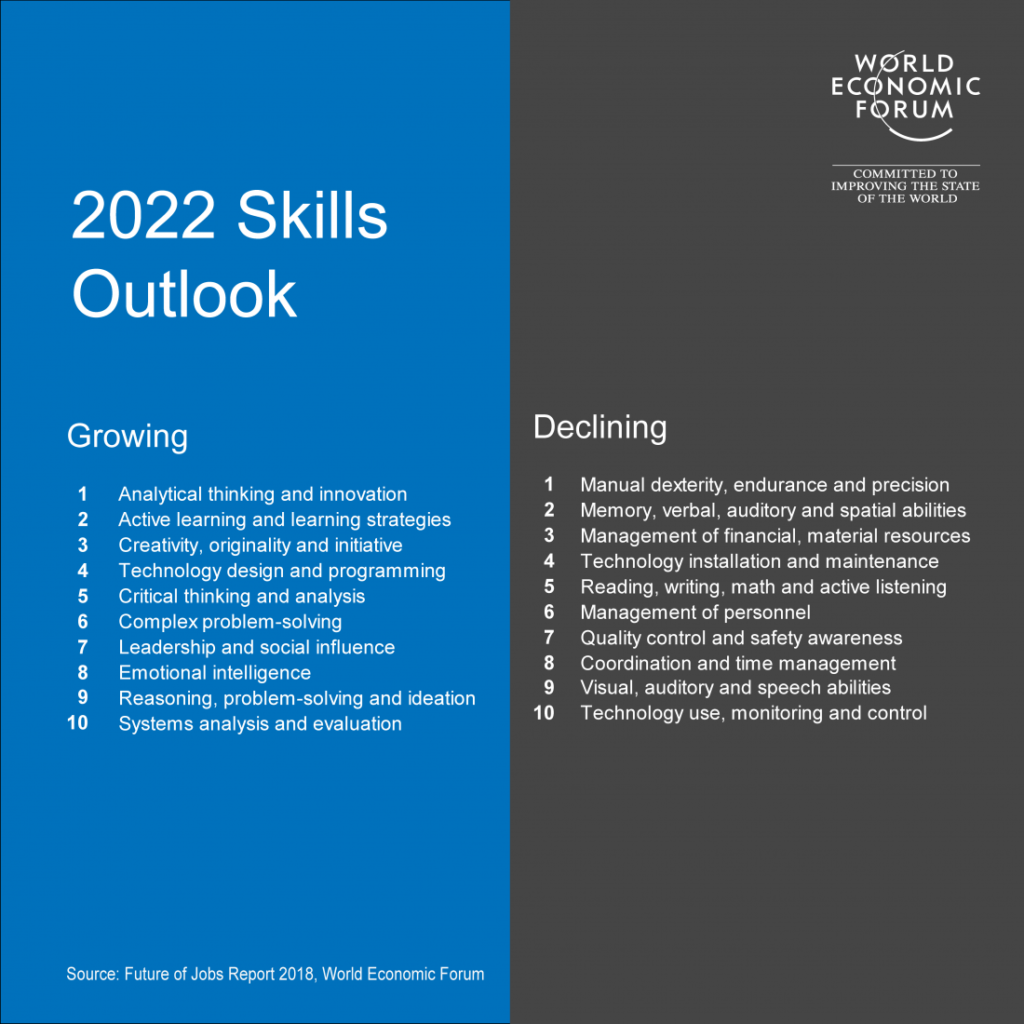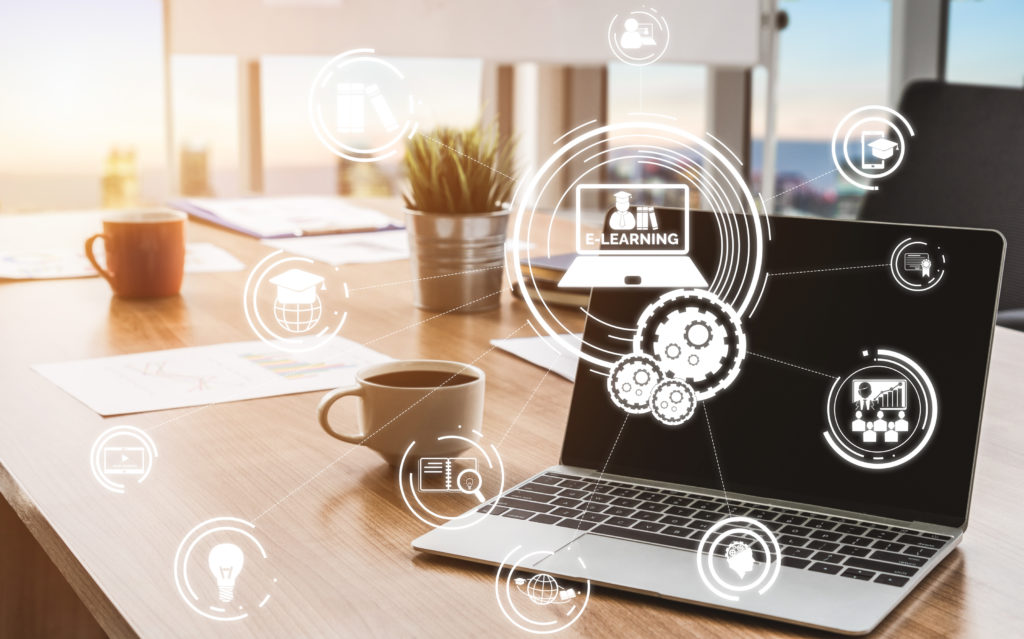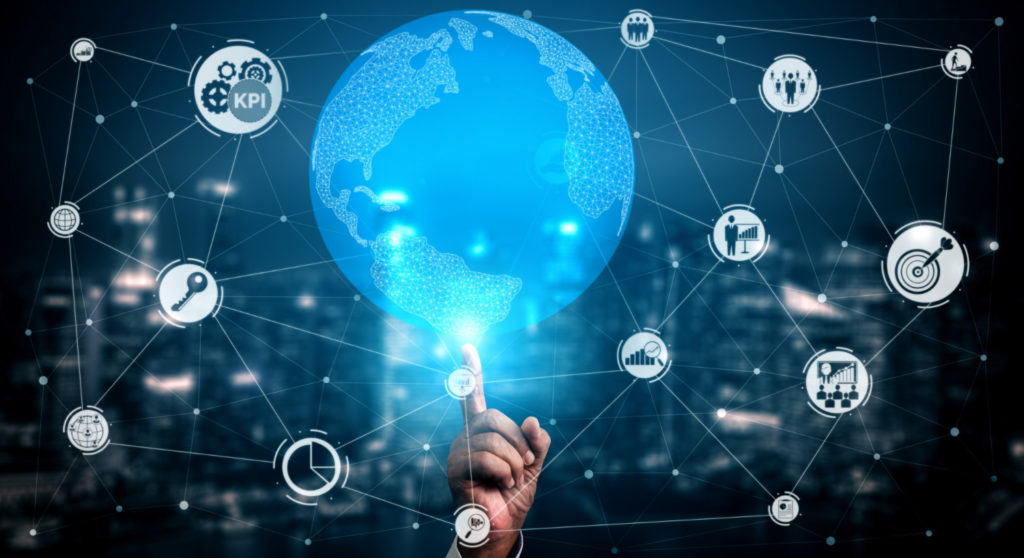FOUR VITAL ELEMENTS YOU MIGHT BE MISSING
The COVID pandemic has increased our initial trajectory thrusting us into the Fourth Industrial Revolution at a rapid rate. McKinsey Global Institute’s recent research reveals how “we have vaulted five years forward in consumer and business digital adoption in a matter of around eight weeks”.
And Intel’s outgoing CEO, Bob Swan, reinforces this insight in a letter to his clients early last year:
“We are witnessing what will surely be remembered as a historic deployment of remote work and digital access to services across every domain.”
It’s becoming clear, in terms of the Fourth Industrial Revolution, that there are a series of competencies critical for humans to stay relevant, and to remain successful, especially as employees.

The World Economic Forum’s report emphasises growing skills that include creativity, originality, initiative, critical thinking, problem solving, leadership, and reasoning.
Deloitte’s third annual survey of over 2000 C-suite executives across 19 countries, examines the intersection of readiness and responsibility to see how leaders are balancing this transition to Industry 4.0. They highlight: “Poor leadership could be the biggest barrier to a successful Fourth Industrial Revolution strategy.” - Deloitte Click To Tweet
Emotional Intelligence underlies the skills necessary to stay relevant
In much of the conversation around Industry 4.0, we hear reference to critical skills like:
Leadership, grit, creative ability, optimism, entrepreneurial spirit, flexibility, problem solving, adaptability, the ability to work in multiple teams, empathy, bringing people together, emotional intelligence, cultural intelligence…
These are posed as the set of skills that need developing, to keep people relevant.
Fundamentally, each of these competencies is rooted in the domain of Emotional Intelligence.
Yet, if we look at current Learning Management Systems (LMSs) around the world, and those built in-house in organisations, there seem to be significant errors in their capacity to develop the very competencies they claim to build.
Current LMSs are built on the premise “content is king”
The major problem with current, prominent LMS platforms – LinkedIn Learning, Udemy, Coursera, edX, Futurelearn, Skillshare etc. – in light of the Fourth Industrial Revolution – is that most of them are built on the premise that content is king. This is a typical Industry 3.0 way of thinking about things - that if we can download the knowledge, the content, then we will be able to upskill ourselves. Click To Tweet
Can one learn Emotional Intelligence in this way?
Competencies rooted in Emotional Intelligence are not rooted in knowledge about these things, but in the actual development of these competencies, which only happens through careful rewiring of specific neurological pathways.
And so, in Industry 4.0, development is king. “In the Third Industrial Revolution learning was king. In the Fourth Industrial Revolution development is king.” - Mark Baker, Mygrow CEO Click To Tweet
Whilst the Third Industrial Revolution (also known as the Information Age) ushered in smart grid technology and allowed for massive online learning to emerge, we shouldn’t make the mistake of assuming that learning equates to development, or that knowledge acquisition is akin to personal development or behaviour change.
Skills like Emotional Intelligence are evidenced by changes in behaviour.
And these behaviours are as a result of very real changes in the brain, brought about by repetition of specific techniques to develop these skills. They are not developed by simply acquiring knowledge.
Thus, if we are to develop emotional competencies on a LMS, a radically different approach to learning is necessary in Industry 4.0.
Four vital elements are necessary.

How most LMSs are getting it wrong – four vital elements you might be missing
There are four elements that LMSs need in order to effectively add value in developing the skills required for Industry 4.0: pedagogy, data, KPIs and integration (of development, measurement and tracking).
1. Pedagogy
The first element is pedagogy – the learning methodology that is impacted by every aspect of a particular LMS – and how that methodology aligns with what is being developed.
The problem with the pedagogy in many LMSs currently is that the focus is on knowledge acquisition, content is seen as king.
Assuming knowledge can develop these emotional intelligence competencies is the equivalent of thinking that watching TED talks on physical fitness is going to make you fitter.
There is an inconsistency in the pedagogy.
To get physically fit, you need exercise over time. That is the methodology that makes you physically fit.
You can watch fitness videos until you are blue in the face, and it’s not going to impact the development of physical fitness.
There is therefore a misalignment in pedagogy with some LMSs where, really, the focus is on learning (i.e. the acquisition of knowledge), and managing the learning. But it doesn't matter how much you learn about Emotional Intelligence. What counts is rewiring the neural pathways in the brain, which can only happen in a similar way to physical exercise - by implementing specific techniques over time. Click To Tweet
Unless the pedagogy aligns with this reality, these competencies will remain undeveloped.
And so, Industry 4.0 LMSs will have to align their pedagogies with the neurological reality of how to develop these emotional intelligence competencies.
2. Data
The second element is data.
Currently, because the focus of LMSs is on the acquisition of content, or knowledge, any data gleaned from the system is simply data about knowledge consumption.
Which is not correlated to development of these competencies, and therefore is rendered feeble.
And so, while many current LMSs give a host of amazing outputs on completion rates, online learner performance, assessment scores and learner feedback, all of this data is largely irrelevant, because it’s not measuring what is needed for actual behavioural change.
Many of the emotional intelligence competencies are developed whilst actively practising these behaviours, not whilst engaging in online learning.
And so LMSs of Industry 4.0 must provide data that includes data extractions like:
- dynamic algorithms measuring current and future behavioural growth
- psychological progress
- behavioural tendencies
These data points should be similar to Fitbits that give accurate biophysical measurements of how a person is responding in a given moment. Ultimately, emotional intelligence data needs to display what's happening with emotional intelligence behaviours, rather than how many videos are watched, or how well someone does on a test. Click To Tweet
So the data is going to need to shift towards dynamic, behaviour-specific measurements.

3. KPIs
Since emotional intelligence competencies are vital to employee effectiveness in an Industry 4.0 workplace, their development must surely be integrated with Key Performance Indicators.
The most effective way to do that is to have technology that drives the development process, with data that accurately measures actual and future skill in these competencies.
Then link this data into KPIs.
A case study: how behaviour changes over time using an LMS primed for Industry 4.0
| Jameel runs a call centre. He has a large team reporting to him. He runs a tight ship and his team appreciates the process he has put in place so that things run smoothly. However, he also becomes fairly toxic (impatient, irritated and doesn’t mince his words) when he’s stressed. Which is fairly often, given the pressure the sales team is under.
His inability to function well under pressure is most noticeable towards month-end if targets aren’t met. He becomes visibly stressed. He micromanages individuals on the team and tends to revert to sarcasm and passive aggression (sighing, rolling his eyes, comments made over his shoulder but not directly to anyone). It leaves the team feeling vulnerable, angry and embarrassed. As a consequence, the stress his team is under means they invariably underperform at month end, despite the super slick process, and Jameel fails to meet his leadership KPIs. Jameel is encouraged by HR to start an emotional intelligence online development module in self-awareness, where he very soon becomes conscious of how difficult he finds it to share his feelings of anxiety or to make requests of his team in a way that is palatable for them to hear. He learns how collaboration means having empathy with his team, seeing things from their perspective. He begins listening more, making suggestions rather than instructing, and asking for feedback, which he learns to use constructively. The online self-awareness module he signs up for is designed to change people’s behaviour, over time, with daily techniques allowing him to practise new ways of being. These techniques are accompanied by short Positive Psychology theory videos to support these techniques. The data his manager then receives from the platform, represents Jameel’s EQ growth by incorporating a number of measures into a score that then integrates into his KPIs. The KPIs then are a true reflection of his capability in self-awareness, rather than his attendance or completion of a module. |
4. Integration (of development, measurement and tracking)
The fourth vital element is the combination of developing, measuring and tracking the competencies necessary to be effective in the Industry 4.0 context.
Unless a LMS is able to appropriately and simultaneously develop competencies through its pedagogy, measure these competencies through its different measurement tools, and track it across the organisation, those LMSs are going to ultimately become outdated.
Soon prominent LMSs will become redundant, in much the same way as VHS, CD players, floppy disks, pagers etc.
Unless they adapt their functionality to effectively develop, measure and track these competencies, they will soon be ousted for more useful LMSs.
LMSs need to meet the needs of Industry 4.0
The world is changing and so must LMSs.
Where before, in Industry 3.0, content was king. The LMSs of Industry 4.0 are built in a way that development is king.
Unless current LMSs can pivot towards effectively developing the core competencies that form part of human success, in the Fourth Industrial Revolution, they may find themselves redundant.
Mygrow helps you to develop the skills you need to flourish at work and in life. It does this by methodically building Emotional Intelligence using daily online 10-minute sessions. These sessions involve the techniques that rewire neural pathways in the emotional centres of the brain over time, helping you interact with your world in new and positive ways.


